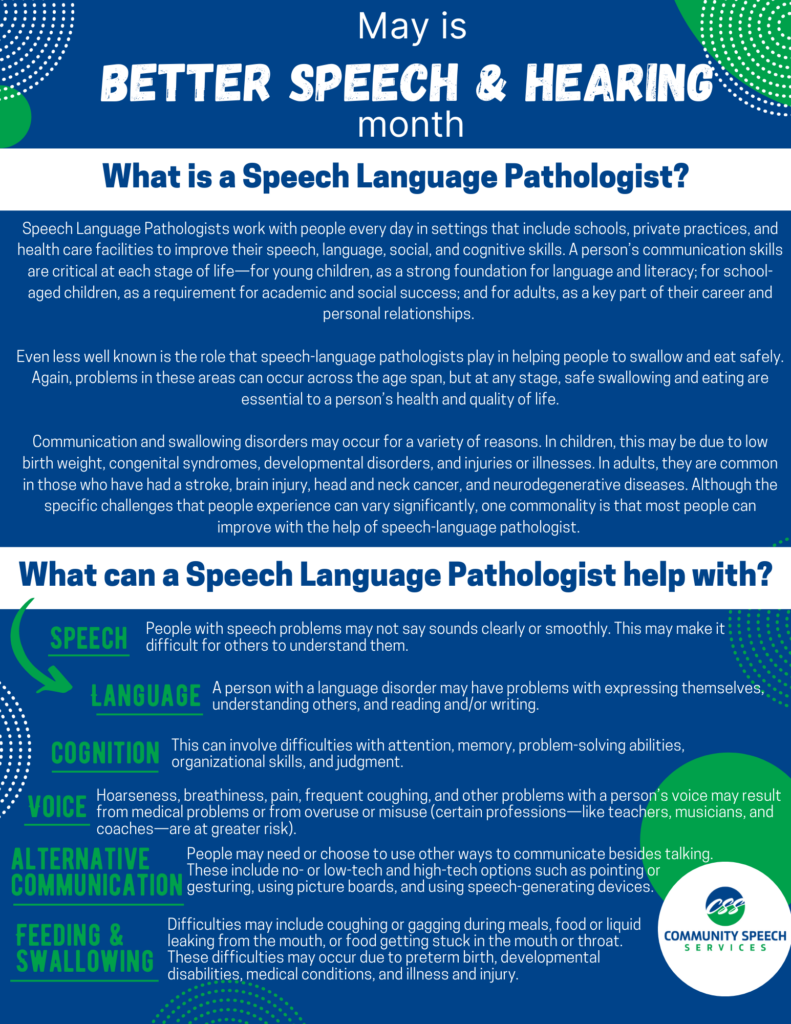Call us: 330-896-9119
Text
May 3, 2022
Have you ever wondered what a Speech Language Pathologist can help with?
Speech Language Pathologists work with people every day in settings that include schools, private practices, and health care facilities to improve their speech, language, social, and cognitive skills. A person’s communication skills are critical at each stage of life—for young children, as a strong foundation for language and literacy; for school-aged children, as a requirement for academic and social success; and for adults, as a key part of their career and personal relationships.
Even less well known is the role that speech-language pathologists play in helping people to swallow and eat safely. Again, problems in these areas can occur across the age span, but at any stage, safe swallowing and eating are essential to a person’s health and quality of life.
Communication and swallowing disorders may occur for a variety of reasons. In children, this may be due to low birth weight, congenital syndromes, developmental disorders, and injuries or illnesses. In adults, they are common in those who have had a stroke, brain injury, head and neck cancer, and neurodegenerative diseases. Although the specific challenges that people experience can vary significantly, one commonality is that most people can improve with the help of speech-language pathologist.
Here are some specific areas where Speech Language Pathologists work with students, patients, and clients:
